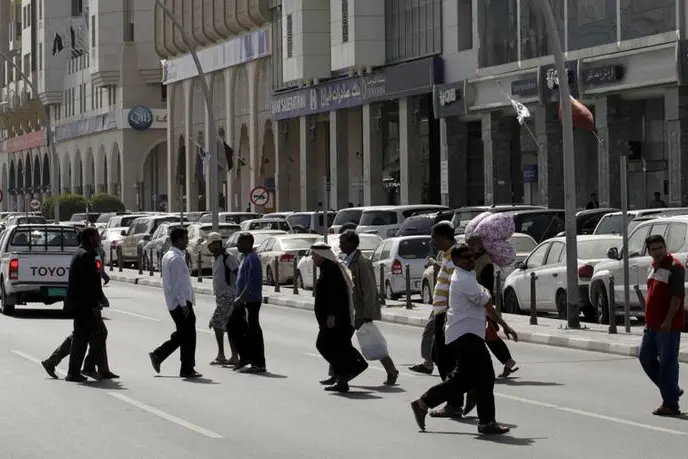PHOTO
The GCC region is poised for significant economic growth, with GDP projected to reach $3 trillion by 2030 and $6trn by 2050, it has emerged.
This was the key takeaway from the opening panel discussion ‘Investing for Resilience in a Fast-Changing Global Reality’ at Gateway Gulf 2024 yesterday.
Moderated by broadcaster Richard Quest, with Finance and National Economy Minister Shaikh Salman bin Khalifa Al Khalifa participating alongside Saudi Arabia’s Minister of Investment Khalid Al Falih, and former UK Minister for Investment Lord Gerry Grimstone, the opening session underscored the necessity for growing regional integration, as well as technological innovation to leverage opportunities in the global economy, as well as mitigating current and future risks.
Panellists agreed that while Saudi Arabia and the UAE are major drivers of this growth, other GCC countries can capitalise on the opportunities by offering services and contributing to the regional economy.
This interconnectedness ensures that economic growth in any GCC country benefits the entire region, as seen in sectors like tourism, finance and logistics. The economic union and reduced trade barriers further accelerate this positive impact.
Since the inaugural event six years ago, the GCC region has undergone a remarkable transformation. Today, the region is not only open for business but is actively reshaping its economic landscape with unprecedented opportunities for investment and trade.
“The GCC is not only open for business, but we are rapidly transforming it with outstanding opportunities for investment and trade,” Shaikh Salman said.
Since the last Gateway Gulf event six years ago, Bahrain has attracted more than $15.6 billion in foreign direct investment, with a record $6.8 billion in 2023 alone. The kingdom’s strategic location, business-friendly environment, and focus on digital transformation have made it a hub for global businesses.
“This is more than just an FDI statistic. It is a testament to the confidence the world has in our potential,” Shaikh Salman added.
Key players like Amazon Web Services, which established the region’s first cloud data centre in Bahrain in 2019, are spearheading the kingdom’s digital transformation, supported by government initiatives such as the ‘cloud-first’ policy and the unique data sovereignty law.
The minister emphasised Bahrain’s commitment to embracing digital-first policies and next-generation technologies, positioning the nation not just for the future, but as a leader in shaping it.
“Bahrain’s economy remains the most diversified in the region, with non-oil sectors contributing over 85 per cent of national GDP,” he said. “Our growth and diversification mirror a broader regional transformation.”
The GCC region, including Bahrain, is undergoing significant economic and social transformation, with a focus on sustainable development and increased female workforce participation.
“A unified GCC can serve as a stabilising force, shaping not only our own future but influencing the future of global economic and political landscapes,” he added.
Underscoring the immense opportunities in the GCC, Shaikh Salman noted, “When we discuss the region... These opportunities far outweigh any concerns people may have. The reality is that the potential for growth and investment in the GCC surpasses the negative narratives often portrayed in the news.”
“Despite global crises and tensions, the GCC continues to offer significant opportunities for investors and businesses. The region’s growth forecast remains strong, even in the face of various challenges,” he added.
He added, “Despite global crises and tensions, the GCC continues to offer significant opportunities for investors and businesses. The region’s growth forecast remains strong, even in the face of various challenges.”
Mr Al Falih recalled that Bahrain’s historical ties with Saudi Arabia stretch back centuries, sharing that Bahraini geologists played a crucial role in the discovery of the Dammam Dome, a foundational moment for Aramco.
“Despite global challenges, the GCC region has shown resilience, overcoming tensions and emerging stronger. Economic progress is evident, with declining unemployment rates and increasing trade. Furthermore, integration with indigenous communities is steadily improving,” the Saudi minister added.
According to Lord Grimstone, investors today face a complex landscape, grappling with challenges such as climate resilience, technological advancements, geopolitical tensions, and cultural and social shifts.
“This multifaceted challenge has significantly increased the complexity of the investor’s role compared to previous times. Nations must identify their unique strengths and compete effectively on the global stage to attract vital investments,” he advised.
Copyright 2022 Al Hilal Publishing and Marketing Group Provided by SyndiGate Media Inc. (Syndigate.info).





















